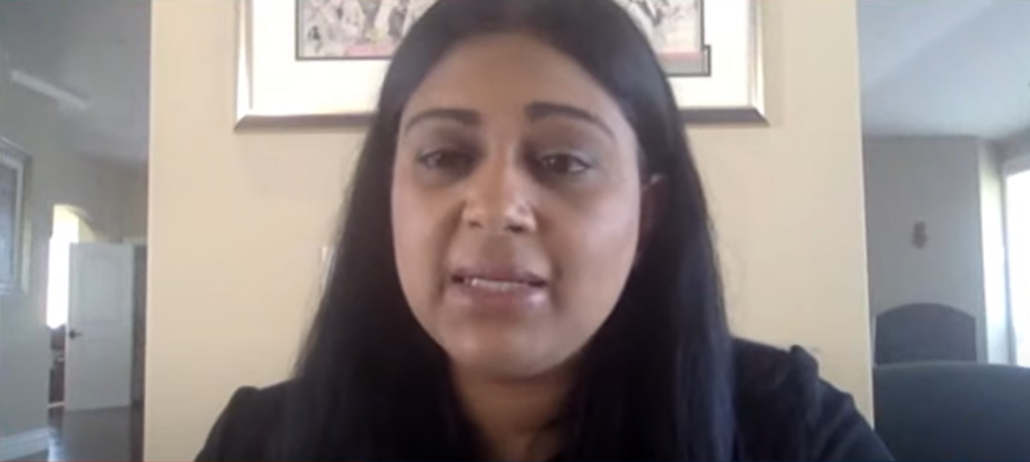Contact Tracing App Can Assist in Reopening Localities Safely, According to AI Task Force Panelists
July 9, 2020 — In the absence of federal leadership, the number of coronavirus cases has continued to climb in the United States, reaching a new single-day record number of infections on Wednesday with 60,000 cases recorded in 24 hours, according to infectious disease physician Dr. Krutika Kuppalli.
Jericho Casper

July 9, 2020 — In the absence of federal leadership, the number of coronavirus cases has continued to climb in the United States, reaching a new single-day record number of infections on Wednesday with 60,000 cases recorded in 24 hours, according to infectious disease physician Dr. Krutika Kuppalli.
In a Wednesday hearing, members of the House Financial Services Committee’s task force on artificial intelligence were joined by contact tracing experts to discuss the importance of exposure notification and contact tracing apps in fighting the ongoing pandemic.
While some questioned the usefulness of tracking apps, many fought for their importance in allowing localities to safely reopen.
Kuppali called for the U.S. to learn from the global community by developing a national plan led by science.
She criticized the existing “patchwork system,” in which every municipality and state is making its own decisions. This approach makes it very difficult to combat the spread of the disease, she said.
Kuppali outlined three common components of successful domestic plans, crucial in fighting the pandemic: the development of a comprehensive national plan led by science, the rapid scaling up of testing and the implementation of contact tracing apps.
“Until we have a vaccine, maintaining cases will rely on surveillance, testing, contact tracing and isolation,” she said.
“We are still having problems with isolation and contact tracing,” Kuppali added, expressing frustration with the lack of federal initiative and overall progress. “We have been having these problems for months.”
According to the panelists, two-thirds of Americans say they would not trust a contact tracing app developed by major tech companies or the federal government.
Current adoption rates of contact tracing apps in the United States are extremely low, which panelists attributed to the fact that downloading these apps is often presented as a tradeoff to civil liberties.
Rep. Barry Loudermilk, R-Ga., emphasized the importance of trust in getting Americans on-board with tracing apps, noting that it is extremely critical that citizens understand how data is being used.
Two experts on the panel have already developed software which could assist in the reopening process while avoiding the sacrifice of individuals’ privacy.
Ryan McClendon, CEO and founder of the CVKey project, which aims to help communities reopen responsibly during the COVID-19 pandemic without compromising privacy, argued for the importance of using Bluetooth signals in tracing apps instead of GPS location data.
He maintained that the interface created by Apple and Google, which utilizes Bluetooth signals, could be extremely useful in countering the disease.
CVKey centralizes information for users, in an attempt to lessen the confusion caused by everchanging public health policies.
The app includes a symptom checker, clear guidelines on policies in the user’s area and a CVKey pass, which businesses can utilize to only allow low risk customers in.
Ramesh Raskar, MIT professor and founder of PathCheck, also argued for the worth of the Bluetooth tracking software created by Apple and Google.
PathCheck utilizes similar software, including a customizable mobile app and a production-ready exposure notification server based on the Google open source project.
Raskar argued that contact tracing apps can play a big role by allowing the country to track the spread of the disease cheaply, quickly and at scale.
He further contended that any app utilized should be built transparently and be open to scrutiny from the public.
McClendon said that local institutions, such as employers, universities and schools, play an important role in maximizing app adoption and so workplaces should be utilizing contact tracing to protect their workforce.
“We need 60 to 70 percent adoption for these apps to be useful,” said McClendon. “One of the best ways to do that is to work with local institutions — it is simply a marketing challenge.”
“Workplaces could become hot spots and shut down again, which people don’t like,” McClendon continued. “Preventing the shut down by keeping the communities safe is a strong argument for adoption, if we can communicate that message.”
Some panelists maintained doubt, saying that Americans are simply unlikely to adopt these apps.
“I can just tell you for a fact, my most rural counties are not going to utilize these apps,” said Rep. Anthony Gonzalez, R-Ohio, adding that he doesn’t blame them.
The experts contended that this is the greatest modern threat the country has seen and that how legislators choose to manage this disease will be their legacy.
Especially as a nation that enjoys boasting of its tech dominance, Kuppali said, the U.S., should lead in the arena.









Member discussion